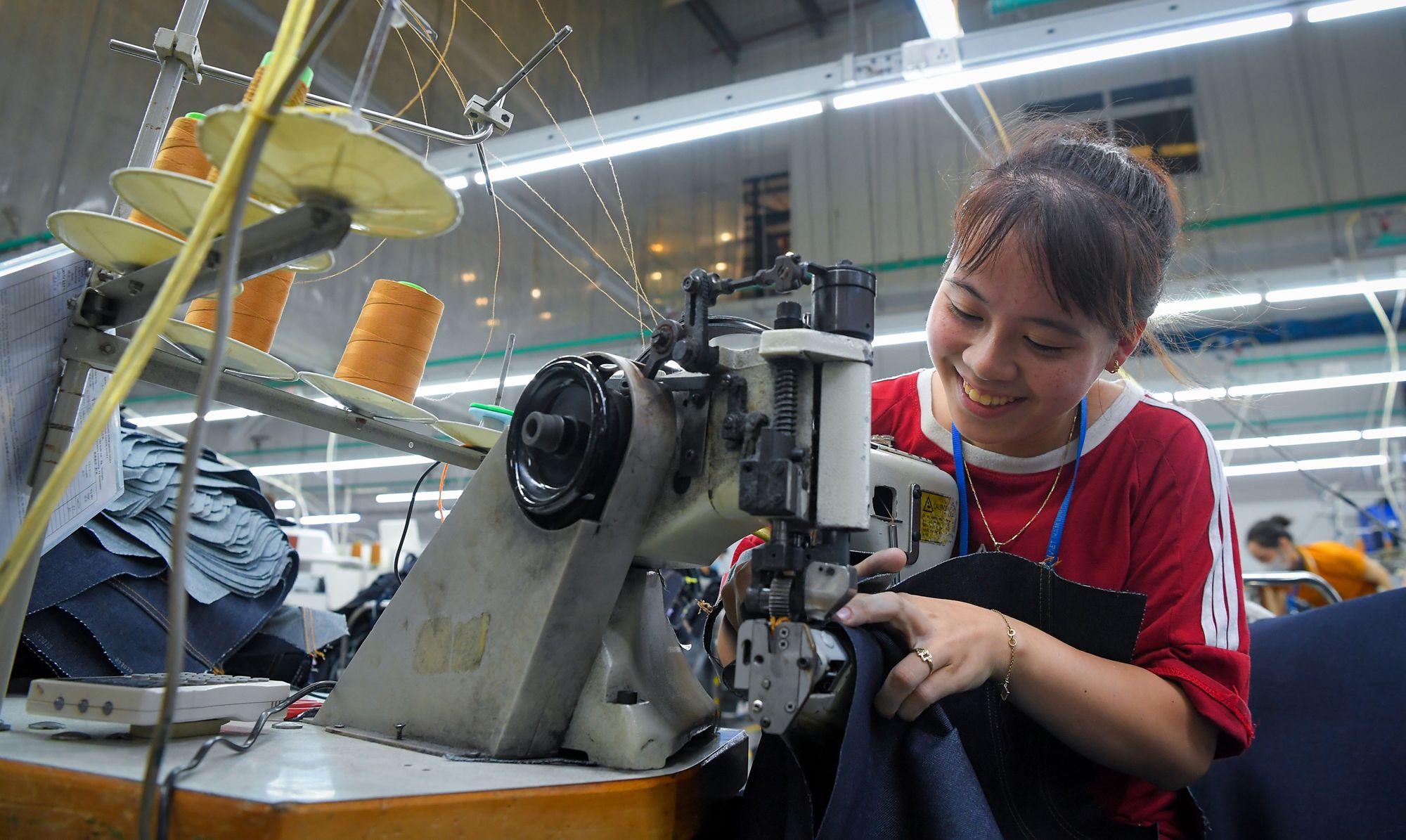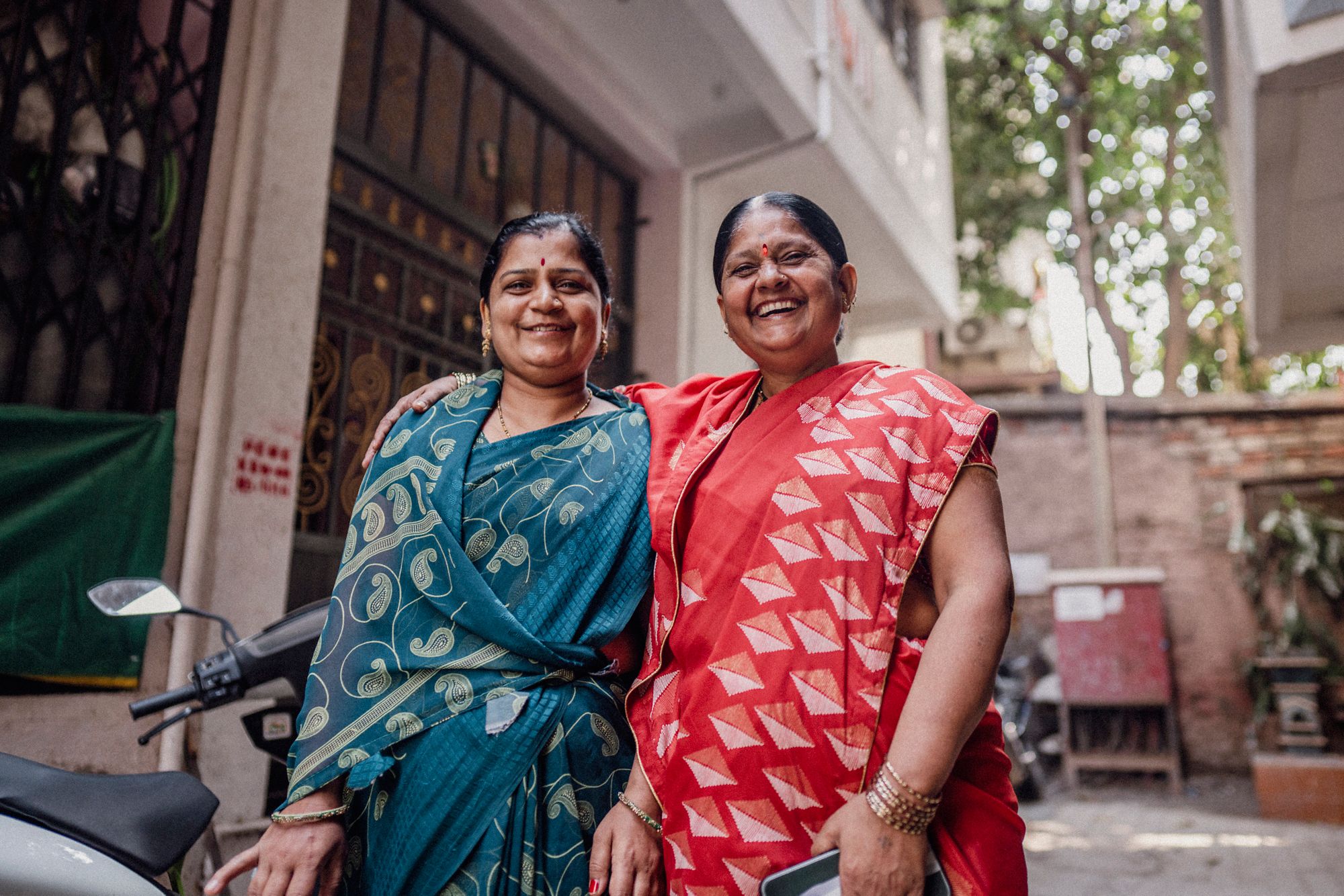At a Glance
Addressing climate change is the most urgent and complex issue of our time. However, the representation of women in the energy sector remains alarmingly low.
A growing cohort of women are working to redress this balance and empower the climate workforce in Viet Nam.
-
72ndVIET NAM'S RANK IN GENDER EUQALITY FOM 146 COUNTRIES
-
22 percentJOBS HELD BY WOMEN IN GREEN INDUSTRIES
This story was originally published in The LEADER on October 20, 2024.
Inspired by the immense potential of the energy sector to drive human and social development, Jessica Tran, Country Manager for Viet Nam at Clime Capital—a Singapore-based fund manager that invests in green energy projects in Southeast Asia—quit her cushy multinational job to dive into the dynamic and challenging world of climate finance.
"Climate change is the most urgent and complex issue of our time,” said Tran. “Viet Nam, my homeland, is among the most vulnerable, which is why I am determined to contribute to the country's green transformation.”
However, what troubles Tran is that the representation of women in the energy sector remains alarmingly low. At Clime Capital, she works with hundreds of startups focused on reducing carbon emissions, but only five percent of companies have a female chief executive or founder, and women make up less than 30 percent of the workforce, predominantly in supporting roles like HR, finance and administration.
"This disparity highlights the systemic challenges that hinder women's progress in the clean energy transition," she said. Resolved to address these barriers, Clime Capital has integrated a gender perspective into the company’s strategies, focusing on women-led initiatives through skill development, market support, collaboration and together promoting inclusivity, ensuring diverse perspectives are represented in the clean energy sector.
With a similar vision, Michele Wee started her journey in the banking industry over 30 years ago when the field was a male-dominated fortress. Looking back, Wee wishes she had a mentor and a network of colleagues to guide her through the complexities of leadership. She did not. Yet she rose through the ranks to become the Country Chief Executive of Standard Chartered Bank Vietnam in 2021.
Tran and Wee both represent a growing cohort of women empowering the climate workforce in Viet Nam. Despite their different journeys, they face similar challenges that women in the sector encounter—gender bias, underrepresentation, and the stereotypes of male-dominated industries.
When it comes to gender equality, Viet Nam ranks 72nd out of 146 countries in the World Economic Forum’s 2023 Global Gender Gap Report. The country’s Nationally Determined Contributions acknowledge the gendered impacts of climate change. Yet to effectively address this issue, integrating gender factors into policy and climate financing frameworks is key. This will help foster climate projects that are more responsive to gender needs.
 Jessica Tran, Country Manager for Viet Nam at Clime Capital. Photo: Le Viet Hung.
Jessica Tran, Country Manager for Viet Nam at Clime Capital. Photo: Le Viet Hung.
A recent World Bank report shows that women workers only hold 22 percent of jobs in green industries. Also, as the global climate crisis intensifies, diverse perspectives in climate-related industries are crucial. European Central Bank research shows a one percent increase in the share of women managers can lead to a 0.5 percent decrease in carbon emissions. Similarly, FP Analytics found that companies with greater board gender diversity are 60 percent more likely to reduce the intensity of their energy consumption. These numbers underscore the vital role women play in shaping a sustainable future.
In one example, under Wee’s leadership, Standard Chartered Bank Vietnam has made significant strides in gender equity. Women now comprise nearly 70 percent of the bank’s workforce in Viet Nam. The bank’s success in sustainable financing is also coherent to studies showing that lending volumes to more polluting industries are 10 percent lower when banks have at least 37 percent women board members. In October 2024, Wee gracefully transitioned her role to a local female successor, ensuring the bank's continued commitment to empowering women and driving positive change.
Fueling change
Tran attributes her success to three influential women who shaped her journey, reinforcing her deep belief in the power of women empowering women. "One of them was my predecessor at Clime Capital, who recommended me for the position and had tremendous confidence in me,” she added. “That gave me the courage to take on a challenge that would allow me to make a greater impact on the community."
As members of the Climate Leaders Network (CLN)—launched by IFC and the Global Energy Alliance for People and Planet with support from the Australian government and the United States Agency for International Development—Tran and Wee are both working relentlessly to address women’s underrepresentation in climate action and related technical fields.
“At IFC, we strongly believe that tackling climate change requires mobilizing the skills, leadership, and innovation of the entire private sector, and women's full participation is absolutely vital,” said Thomas Jacobs, IFC Country Manager for Viet Nam, Cambodia and Lao PDR. “As long as we act for increased women’s participation and leadership in climate action, Viet Nam can accelerate a climate transition that is more inclusive, just, and impactful.”
 Winnie Huynh, a trailblazer in the green-energy sector and a CLN member. Photo: Le Viet Hung.
Winnie Huynh, a trailblazer in the green-energy sector and a CLN member. Photo: Le Viet Hung.
In May 2024, through CLN, Standard Chartered Bank Vietnam signed an agreement to provide advisory services to the Green Solution’s Tra Vinh green hydrogen project in Viet Nam, founded by Winnie Huynh, a trailblazer in the green-energy sector and a CLN member.
“When a potential investor asked why I chose Standard Chartered Bank, I explained that in the energy sector, and particularly in the emerging field of green hydrogen, women often have to work harder and face more challenges than men,” said Huynh. “I needed a partner who could understand and empathize with the obstacles I encounter. That shared understanding is crucial to our collaboration.”
Collaboration is indeed key. As more women in Viet Nam join forces, they are ready to harness their collective strength, attracting opportunities that can drive transformative change in the climate industry.



